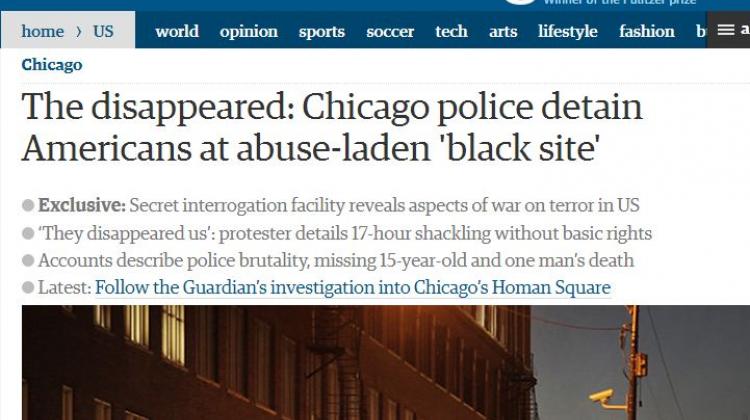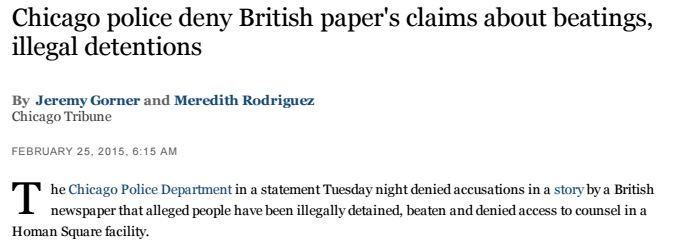
Lesson Outline
Who watches the watchdog?
Journalistic peer review in the debate over a Chicago Police Department holding facility

"Truth" is a tricky subject in News Literacy.
Because we use each day's news as our text, students quickly discover that journalistic truth is provisional: It changes as new evidence is discovered. And because journalistic truth-seekers are writing the early first draft of history, they are often surrounded by contentious parties who are all seeking to declare the truth about events in which the blood is still drying, the smoke is still clearing, or the action is still unfolding. Sometimes the most important force holding journalists accountable for the truth of their reports are fellow journalists. One can, with a straight face, argue that journalists are generally sworn to seek truth. But one can also, with a straight face, note that competitive journalists love nothing more than to find fault -- publicly -- with a competitor's account of the facts.
Which is what makes the controversy over Chicago's "Homan" facility such a rich case study.
In February 2012, a Brooklyn, NY-based reporter for London's Guardian newspaper uncorked a bruising report about the Chicago Police Department in which he quoted multiple sources saying the department operates a secret detention center where unpopular protesters and other arrestees are routinely held for long periods without access to legal counsel and without their arrest being made public in the computer booking records by which police are held accountable.
Several online news outlets jumped on the story, focusing on the government secrecy angle: The Blaze (operated by talk-show personality Glenn Beck) mostly restated what the Guardian had reported, as did Infowars, the website operated by American conspiracy theorist Alex Jones. The Intercept, started by eBay founder Pierre Omidyar, did some reporting on its own, interviewing sources with experience dealing with the Chicago Police Department.
Chicago's legacy media outlets focused on government secrecy, too, but took the opposite approach: reporting they have frequently been invited to Homan Square and that parts of it are appropriately closed to the public because they house undercover officers.
In this lesson, students will review some of the coverage to explore the role the press plays in holding the press accountable and to expose the importance of consuming a varied news diet, so as to be aware of challenges to reporters' work.
-
Key Concepts
-
Course Sections
-
Grade Level
-
0 comments
-
2 saves
-
Share
